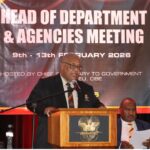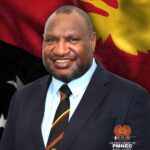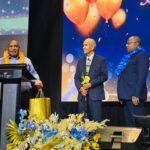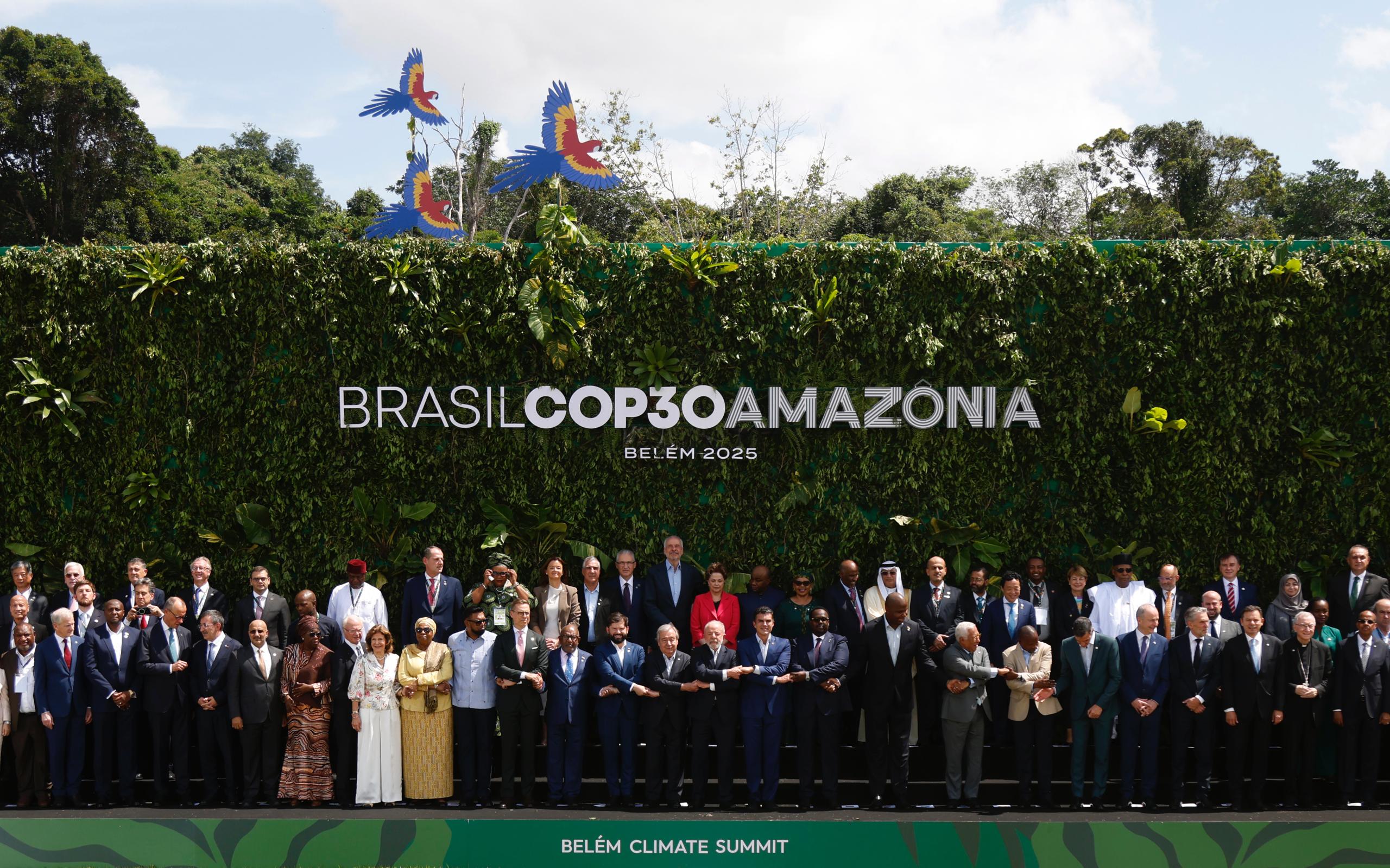Prime Minister Hon. James Marape has concluded a landmark week at the United Nations COP30 Climate Conference in Belém, Brazil, where he represented Papua New Guinea as one of the world’s foremost voices for forest and ocean nations.
Prime Minister Marape’s participation in COP30 marked a significant moment for Papua New Guinea’s global leadership on climate justice, sustainable development, and nature- based solutions, reinforcing the country’s moral authority as custodian of one of the planet’s largest remaining tropical rainforests.
Throughout multiple high-level sessions and bilateral meetings, Prime Minister Marape articulated a consistent message — that forest and ocean nations like Papua New Guinea, Brazil, and the Democratic Republic of the Congo are carrying the weight of the planet’s survival by preserving vital ecosystems that regulate global temperature, store carbon, and sustain biodiversity.
Strengthening Global Leadership for Forest and Ocean Nations
At the World Leaders Climate Action Summit, Prime Minister Marape issued a stirring call for world leaders to “act now and act responsibly,” stressing that for small island and forest nations, the climate crisis is not theoretical but existential.
“For Papua New Guinea, climate adaptation and mitigation is not a choice — it is a matter of survival,” he told delegates. He reaffirmed PNG’s commitment to Articles 5 and 6 of the Paris Agreement, which recognise the critical role of forests and carbon markets in tackling climate change.He emphasised that Papua New Guinea safeguards 35 million hectares of pristine rainforest — equivalent to 13% of the world’s tropical forests — alongside vast ocean ecosystems that sustain 7% of global biodiversity. “Forests and oceans are our greatest allies — they preserve the air, regulate the climate, and sustain life on Earth,” he said.
Prime Minister Marape acknowledged the support of international partners including the United Nations, France, Australia, the Green Climate Fund, the World Agroforestry Centre (ICRAF) and the Coalition for Rainforest Nations for advancing PNG’s conservation agenda. He also paid tribute to His Majesty King Charles III, President Xi Jinping, and UN Secretary- General António Guterres for championing global efforts to protect forests and biodiversity.
Calling for Climate Courage and Global Justice
Prime Minister Marape commended UN Secretary-General António Guterres for his powerful address at the opening of COP30, describing it as “a moral compass for world leaders to act decisively in this decade of truth.”
He said the Secretary-General’s warning — that the world is “running out of time to keep the 1.5°C limit alive” — should galvanise every nation to act with courage, urgency, and fairness. “The 1.5°C limit is not a political target; it is a red line for humanity,” PM Marape said.
He fully endorsed the Secretary-General’s call for a paradigm shift in global climate action, emphasising the need to phase out fossil fuels, accelerate renewable energy transitions, and protect tropical forests and oceans — the planet’s natural carbon sinks.
“Papua New Guinea stands shoulder to shoulder with the United Nations and forest nations like Brazil in protecting the lungs of the Earth,” he said. “Our forests and our oceans are the greatest natural assets we can offer the world — and we must ensure that their preservation is matched with fair and equitable climate finance.”
PM Marape described the Secretary-General’s words as “a rallying cry for all developing nations that have contributed least to the problem but suffer most from its consequences.”
Deepening PNG–Brazil Strategic Partnership
On the sidelines of COP30, Prime Minister Marape held historic bilateral discussions with Brazilian President Luiz Inácio Lula da Silva, where both leaders agreed to strengthen strategic cooperation across climate action, food security, and clean energy.
President Lula praised Papua New Guinea as a natural partner in advancing global climate leadership, saying Brazil and PNG were “forest and ocean-rich countries with shared responsibilities in protecting the planet’s lungs.”
Prime Minister Marape emphasised that both nations — despite having minimal carbon footprints — are shouldering the burden of climate change for the entire world.
“Our forests and oceans carry the world’s excess carbon, yet our people have not shared in the benefits of global carbon wealth,” he said.
The two leaders agreed to:
• Establish diplomatic missions in each other’s capitals to deepen political and economic ties.
• Collaborate on tropical agriculture, renewable energy, and biodiversity conservation.
• Explore partnerships in hydropower, LNG, and clean energy technologies.
Prime Minister Marape also proposed a framework for Pacific-to-Amazon diplomacy, linking the Pacific’s forest and ocean nations with Latin America’s environmental and agricultural powers. “We are connecting the Pacific and the Amazon — two of the world’s great forest regions — in a common cause for climate and sustainable growth,” he said.
He further invited Brazilian companies to invest in Papua New Guinea’s agriculture and energy sectors, noting that “Brazil’s agribusiness success can inspire PNG’s transformation into a food-secure exporting nation.”
Advocating for Climate Finance and Fairness
At the Leaders’ Thematic Session on “10 Years of the Paris Agreement: NDCs and Financing,” Prime Minister Marape called for an overhaul of global climate financing systems to ensure forest nations are rewarded for conservation rather than deforestation.
“Our forests deserve proper conservation financing,” he said. “Nature-based technologies must begin by valuing standing forests — not just harvested timber. One hectare of conserved forest can save the world far more than any industrial offset.”
He urged industrialised nations to honour their commitments and move beyond pledges to tangible implementation, emphasising Articles 5 and 6 as the pathway for equitable climate finance through jurisdictional REDD+ and transparent carbon market mechanisms.
Prime Minister Marape welcomed the unveiling of the Baku–Belém Roadmap, a landmark initiative by the COP29 and COP30 Presidencies to mobilise US$1.3 trillion annually by 2035 for developing nations. He described it as “a major step forward for climate justice, equity, and shared responsibility under the Paris Agreement.”
He also endorsed the Roadmap’s Five Action Fronts (5Rs)— Replenishing, Rebalancing, Rechanneling, Revamping, and Reshaping — saying these principles represent a credible framework to unlock climate finance and reform global financial architecture.
“If the global community truly intends to keep 1.5°C alive, it must now invest in countries doing the heavy lifting — conserving tropical forests, restoring reefs, and protecting ocean ecosystems,” PM Marape said.
Papua New Guinea’s Global Standing
Prime Minister Marape’s leadership at COP30 demonstrated Papua New Guinea’s rising influence as a bridge between the Pacific, ASEAN, and Latin America — regions united by their natural capital and shared aspirations for sustainable development.
He reaffirmed PNG’s commitment to halt large-scale unregulated deforestation, restore degraded lands, and protect 30% of its ocean area from illegal and commercial exploitation.
Under the Earth3 Platform, Papua New Guinea is developing high-quality jurisdictional REDD+ credits to generate sustainable revenue while safeguarding ecosystems and supporting community livelihoods.
“For six years as Prime Minister, I have been saying: stop deforestation. Bring real conservation that sustains livelihoods and protects humanity,” he said. “If this generation of leaders fails to find real financing solutions for forest nations, history will judge us harshly.”
He closed his week-long program in Belém with an impassioned reminder:“There is no planet like Earth — rivers, trees, mountains, and oceans sustain life. Mars and Mercury are unlivable. This planet is worth fighting for. Let us save it together.”






